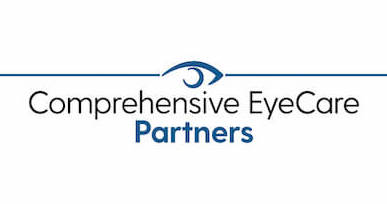
Age-related macular degeneration is the leading cause of vision loss in older adults. This is why the American Academy of Ophthalmology has named February Age-Related Macular Degeneration Awareness month.
This designation is aimed at educating the public about this common and debilitating eye disease. Keep reading to learn more about macular degeneration during Macular Degeneration Awareness Month!
What is Macular Degeneration?
Age-related macular degeneration is an eye condition that affects the macula, the small area in the retina that is responsible for central vision.
There are two types of macular degeneration: dry macular degeneration and wet macular degeneration.
Dry macular degeneration is the most common type. It is caused by the thinning and atrophy of the cells responsible for your vision within the macula.
Dry macular degeneration usually progresses slowly, taking years to develop, which is why it is most often seen in older patients. Wet macular degeneration is less common, but more severe.
It is caused by the growth of abnormal blood vessels under the macula, which can leak, causing scarring and vision loss. Wet macular degeneration is more likely to cause a sudden change in vision and often leads to serious vision loss.
What Are the Symptoms of Macular Degeneration?
Symptoms of age-related macular degeneration often do not appear until the disease has already caused damage to the macula. These symptoms may include changes in the quality of your vision, distorted vision, the loss of the center of your field of vision, and, sometimes, changes in the way you see colors.
Who is Most At-Risk for Developing Macular Degeneration?
Certain people are more likely to develop age-related macular degeneration. Some of the risk factors for developing age-related macular degeneration, include:
Age
It has been reported that by age 65, around 6% of Americans have developed some form of macular degeneration. That percentage increases to 20% in Americans 75 years and older.
Genetics
If your family has a history of age-related macular degeneration, you are more likely to have it as well.
Smoking
Years of smoking are not only bad for your heart and lungs; it also increases your chance of having age-related macular degeneration.
Certain Health Conditions
Common health conditions like high blood pressure, high cholesterol levels, heart disease, or diabetes all put you at a higher risk for age-related macular degeneration.
Gender
Woman are at higher risk for age-related macular degeneration than men.
How Do Eye Doctors Treat Macular Degeneration?
Early detection and intervention are key to managing the irreversible effects of age-related macular degeneration. If you are experiencing any of the symptoms of age-related macular degeneration or have any of the risk factors for the disease, you should be sure to get regular eye care checkups that include specific tests for macular degeneration.
While there is no cure for age-related macular degeneration, treatments are available to limit the impairment of your vision. Treatments include medications that can reduce the growth of new blood vessels in the eye, laser therapy, and low vision aids.
Education and awareness are important first steps in ensuring that age-related macular degeneration does not lead to serious vision impairment. Knowing the signs and risk factors of age-related macular degeneration and scheduling regular eye care exams with an experienced eye care provider like Shepherd Eye Center are the best ways to protect your precious eyesight from age-related macular degeneration!
Do you want to learn more about macular degeneration or have your eye screened for the condition? Schedule an appointment at Shepherd Eye Center at one of our 5 locations in Las Vegas or Henderson, NV, today to schedule a consultation and eye exam with one of our experienced eye care providers!


